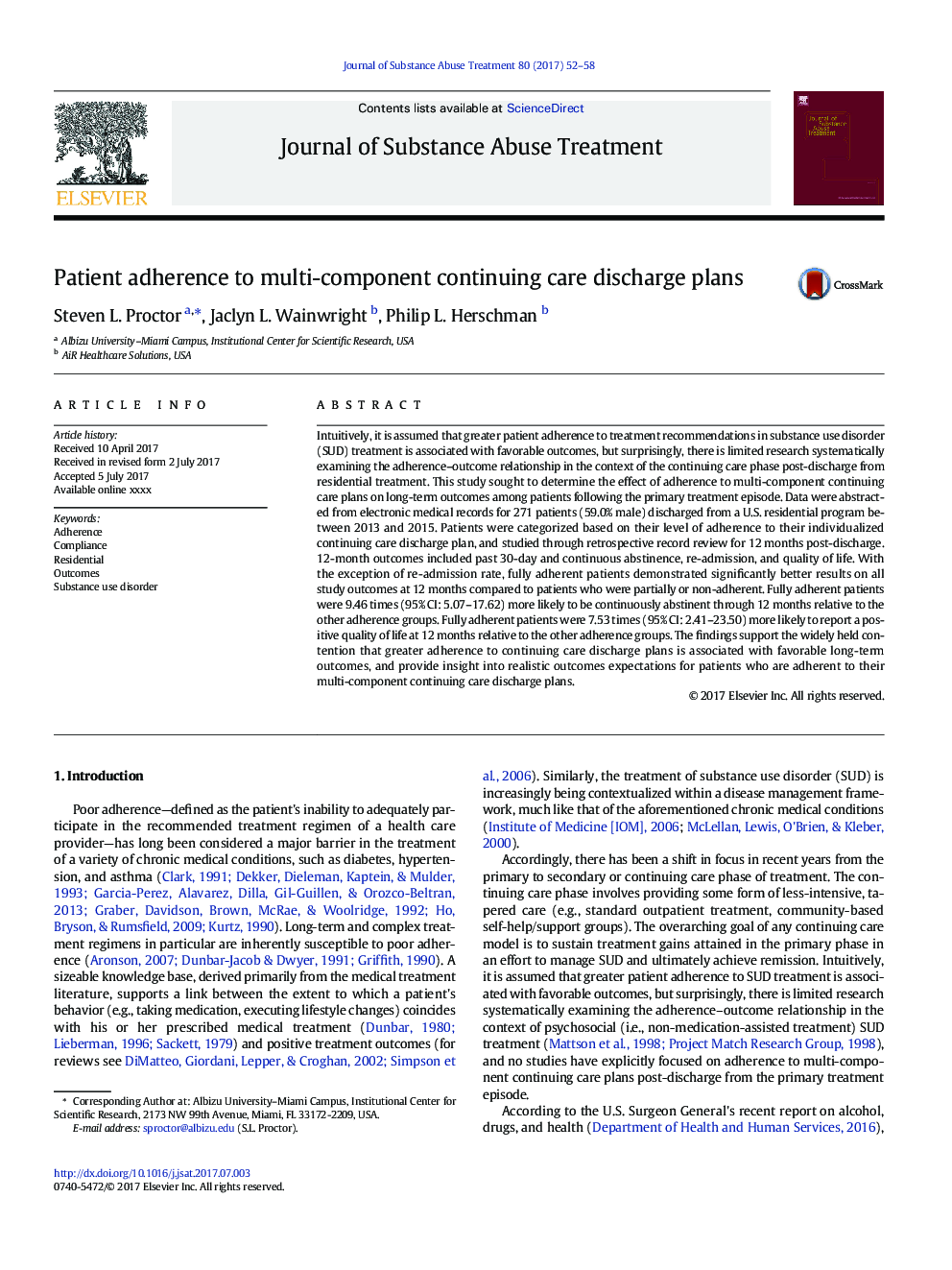| Article ID | Journal | Published Year | Pages | File Type |
|---|---|---|---|---|
| 4932266 | Journal of Substance Abuse Treatment | 2017 | 7 Pages |
Abstract
Intuitively, it is assumed that greater patient adherence to treatment recommendations in substance use disorder (SUD) treatment is associated with favorable outcomes, but surprisingly, there is limited research systematically examining the adherence-outcome relationship in the context of the continuing care phase post-discharge from residential treatment. This study sought to determine the effect of adherence to multi-component continuing care plans on long-term outcomes among patients following the primary treatment episode. Data were abstracted from electronic medical records for 271 patients (59.0% male) discharged from a U.S. residential program between 2013 and 2015. Patients were categorized based on their level of adherence to their individualized continuing care discharge plan, and studied through retrospective record review for 12Â months post-discharge. 12-month outcomes included past 30-day and continuous abstinence, re-admission, and quality of life. With the exception of re-admission rate, fully adherent patients demonstrated significantly better results on all study outcomes at 12Â months compared to patients who were partially or non-adherent. Fully adherent patients were 9.46 times (95% CI: 5.07-17.62) more likely to be continuously abstinent through 12Â months relative to the other adherence groups. Fully adherent patients were 7.53 times (95% CI: 2.41-23.50) more likely to report a positive quality of life at 12Â months relative to the other adherence groups. The findings support the widely held contention that greater adherence to continuing care discharge plans is associated with favorable long-term outcomes, and provide insight into realistic outcomes expectations for patients who are adherent to their multi-component continuing care discharge plans.
Related Topics
Life Sciences
Neuroscience
Biological Psychiatry
Authors
Steven L. Proctor, Jaclyn L. Wainwright, Philip L. Herschman,
